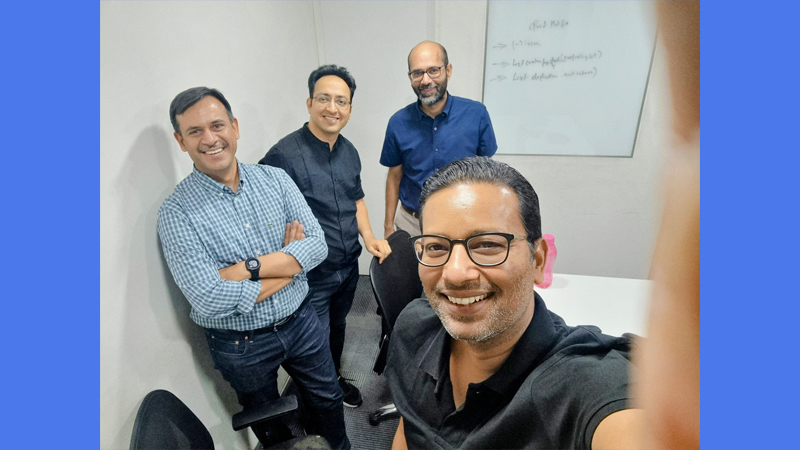In today’s digital age, it’s easy to feel overwhelmed by the constant influx of notifications, calls, and messages coming through on our phones. This constant connection can lead to feelings of stress, anxiety, and even a sense of helplessness. However, there are ways to regain control and find peace of mind by taking charge of your phone. Here, we’ll tackle some effective strategies to help you reclaim your sanity and set boundaries with your device.
Table of Contents
Set Boundaries
One of the most effective ways to regain peace of mind when it comes to your phone is to set boundaries around its usage. This can include implementing designated phone-free times during the day, such as meal times or before bed, as well as turning off notifications for certain apps or contacts. By establishing these boundaries, you can create space for yourself to unwind and disconnect from the constant stream of information that comes through on your device.
Declutter Your Apps
Another way to take charge of your phone and reduce feelings of overwhelm is to declutter your apps. Take some time to go through your phone and delete any unused or unnecessary apps, as well as organize your remaining apps into folders to make them easier to find and access. This can help streamline your phone usage and reduce the distractions that come from having too many apps vying for your attention.
Use Do Not Disturb
The Do Not Disturb feature on most smartphones can be a valuable tool for regaining peace of mind and setting boundaries with your device. This feature allows you to silence all notifications and calls during designated times, such as overnight or during meetings. By using Do Not Disturb, you can create uninterrupted periods of time for focus, relaxation, or sleep, without being constantly interrupted by your phone.
Manage Your Contacts
If you find yourself constantly bombarded by unwanted calls or messages, it may be time to take charge of your contacts list. Be proactive and stop telemarketers, unwanted contacts, and spam numbers in their tracks. You can consider using a call blocker app to further filter out unwanted calls. By managing your contacts effectively, you can reduce the amount of noise and interruptions that come through on your phone, giving you greater peace of mind.
Practice Mindful Phone Usage
Finally, one of the most important ways to regain peace of mind when it comes to your phone is to practice mindful phone usage. This means being intentional and present with your phone usage, rather than mindlessly scrolling or checking in out of habit. Set aside dedicated time for checking your phone, rather than letting it dictate your every waking moment, and be mindful of how your phone usage affects your mental and emotional well-being.
Enable Screen Time or App Usage Tracking
Many smartphones now offer built-in features that track how much time you spend on your device and on individual apps. By enabling screen time or app usage tracking, you can gain insights into your phone habits and identify areas where you might want to cut back. This awareness can be the first step towards healthier phone use habits, allowing you to allocate your time more consciously to activities that contribute to your overall well-being.
Customize Your Notifications
Taking the time to customize your notification settings can drastically reduce the amount of disruption caused by your phone. Prioritize alerts from essential apps and contacts, and mute or disable notifications for less important apps. This will help minimize distractions and enable you to focus more on the task at hand, whether it’s work, spending time with family, or engaging in self-care activities.
Establish a Night Routine Without Your Phone
Creating a night routine that doesn’t involve your phone can improve the quality of your sleep and, subsequently, your peace of mind. Consider setting a “phone curfew” an hour before bed, during which you avoid any digital screens. Instead, engage in calming activities like reading a book, meditating, or preparing for the next day. This not only helps in winding down but also signals to your brain that it’s time to rest, aiding in a more peaceful sleep.
Learn More About Digital Well-being
Educating yourself on the concept of digital well-being and the impact of technology on mental health can provide valuable insights and motivate you to make more conscious decisions about your phone usage. Many resources, including articles, podcasts, and workshops, are available on this topic. Understanding the importance of digital well-being empowers you to take proactive steps in managing your screen time, ultimately leading to a more balanced and peaceful life.
Create Physical Spaces for Phone-Free Activities
Creating physical spaces in your home or office that are designated as phone-free zones can significantly enhance your ability to disengage from digital distractions and immerse yourself in the present moment. Whether it’s a reading nook, a meditation corner, or a crafting table, these spaces encourage activities that don’t involve screen time, offering a tangible way to separate yourself from your device. This separation allows for deeper relaxation, creativity, and interpersonal connections without the constant pull of notifications and calls.
Leverage Technology to Set Limits
Ironically, technology itself can be harnessed to help you manage your relationship with your devices more effectively. Use app blockers and website filters to limit access to distracting sites and apps during specific times of the day or for predetermined durations. For instance, blocking social media apps during work hours can help you stay focused, while limiting access to work emails in the evening can support a better work-life balance.
Taking charge of your phone is essential for regaining peace of mind in today’s constantly connected world. By setting boundaries, decluttering your apps, using Do Not Disturb, managing your contacts, and practicing mindful phone usage, you can create a healthier relationship with your device and reclaim control over your life. So, take the time to implement these strategies and stop disruptions from creating a steady peace of mind.












